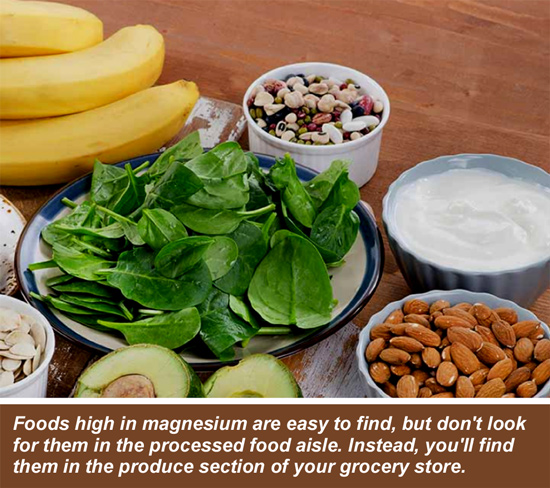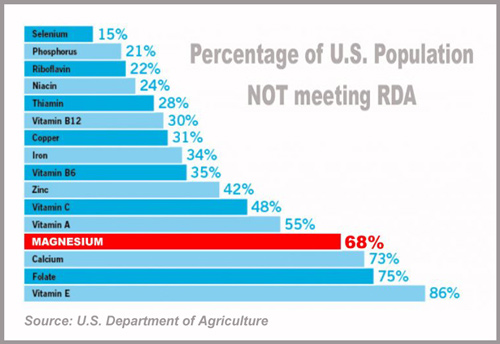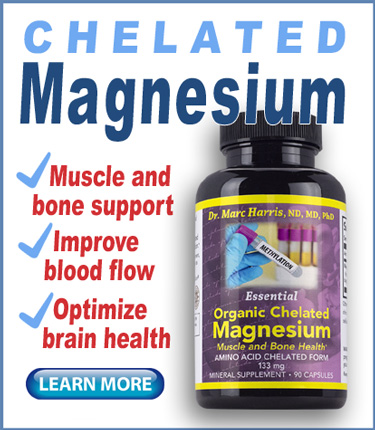In a world suffering from skyrocketing dementia rates, a new study is offering a glimmer of hope: an increase in daily magnesium will provide critical protection as you age.
According to findings from research conducted at Australian National University (ANU) more magnesium on a daily basis leads to a stronger brain, less brain shrinkage, and lower risk of dementia as a person ages.
Researchers reported that people who consume more than 550 milligrams of magnesium each day show a brain age approximately one year younger by the time they reach 55 years old in comparison to someone else with a normal magnesium intake.
“Normal” does not mean adequate, but represents the average consumed today—roughly 350 milligrams a day.
Substantial magnesium increase needed
The large-scale study included over 6,000 cognitively healthy participants in the United Kingdom aged between 40 and 73 years old.
The study adds to a long list of studies highlighting how critical magnesium is in battling modern diseases. An Italian meta-analysis, published in November 2021, reported that magnesium supplementation reduced diabetes symptoms. Meanwhile, a 2020 study found that magnesium was a critical immune mineral in the battle against Covid-19.
In the new study, lead author and PhD reseaercher Khawlah Alateeq notes the research highlights the potential benefits of a diet high in magnesium and the role it plays in promoting good brain health.
“Our study shows a 41% increase in magnesium intake could lead to less age-related brain shrinkage, which is associated with better cognitive function and lower risk or delayed onset of dementia in later life,” Alateeq wrote in a media press release.
To conduct the study, researchers had study participants fill out a series of surveys on five occasions over a period of 16 months. Those responses were then used to calculate daily magnesium intake among participants, based on 200 different foods with varying portion sizes.
The research team focused specifically on magnesium-rich foods like leafy green vegetables, legumes, nuts, seeds, and whole grains.
The research was conducted at ANU’s National Centre for Epidemiology and Population Health. The findings were published in European Journal of Nutrition in March 2023.
Worldwide epidemic
The amount of people who were diagnosed with dementia worldwide stood at 57.4 million in 2019, and the number is increasing by millions every year. It is forecast to be over 150 million by 2050.
The number of people suffering from dementia already places an incredible strain on health and social services, as well as the global economy. If the 2050 forecast comes true the challenges will be inestimable, especially in light of other diseases that are also expected to increase.
The reasons for the staggering rates of dementia today are greatly debated; however, most experts agree that nutrient deficiencies play an important part. And, as it happens, magnesium is one of the top five most deficient nutrients in the U.S. The U.S. Department of Agriculture estimates 68% of the U.S. population is deficient in magnesium intake.
An ounce of prevention… because there is no cure
“Since there is no cure for dementia and the development of pharmacological treatments have been unsuccessful for the past 30 years, it’s been suggested that greater attention should be directed towards prevention,” study co-author Dr Erin Walsh, who is also a researcher at ANU, explains. “Our research could inform the development of public health interventions aimed at promoting healthy brain aging through dietary strategies.”
The researchers hope their work will not only encourage higher magnesium consumption in the elderly, but also amongst the youth. The study authors theorize a higher intake of magnesium at a young age will safeguard against both neurodegenerative diseases and cognitive decline by the time they reach middle-age.
According to the USDA website, an adequate magnesium intake can be reached by eating more vegetables, especially dark leafy greens; consuming more legumes; and by eating more whole grain breads, cereals and pastas.
Magnesium can be found in the following Optimal Health Systems products:
• Essential Organic Chelated Magnesium
• Whole Food Vitamin-Mineral
– – –
Sources include: European Journal of Nutrition, USDA.gov.



